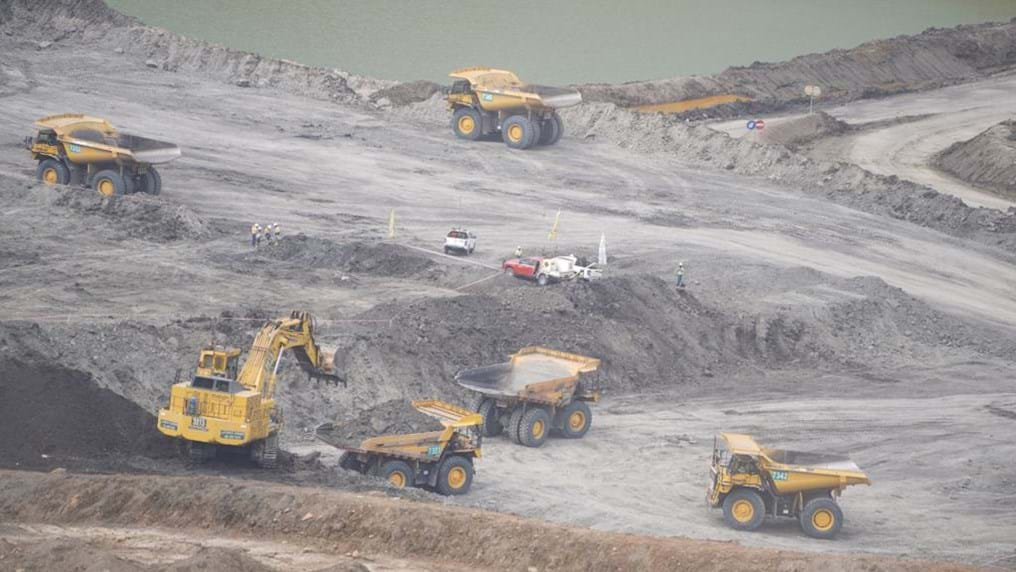IChemE Vice President leads report setting out the way forward on critical materials

11th October 2024
Professor Joan Cordiner FREng FRSE FIChemE, IChemE’s Vice President (Learned Society) chairs the National Engineering Policy Centre Working Group on Materials and Net Zero and led the publication of a new report on critical materials.
Critical materials such as lithium, magnesium and cobalt are vital to the UK’s economy and are used in products ranging from batteries to steel alloys. These materials are mined around the world and have a significant environmental impact, meaning that they have important implications for the UK’s environmental and geopolitical aspirations. Much of the infrastructure and technologies currently being used to decarbonise the economy rely on critical materials.
This new report calls on the UK government to develop an integrated materials strategy to reduce demand, reuse and recycle critical materials to support the UK’s existing Net Zero Strategy, and improve economic security. The authors propose a new target to halve the UK’s economy-wide material footprint to help avoid overconsumption and support the drive to reach net zero carbon emissions. The report recommends maintaining a National Materials Data Hub to monitor the sustainability of materials consumed by and in use in the UK, and enable assessment of infrastructure plans for material security and sustainability.
It also proposes investing in design to reduce demand, together with more recycling facilities for machinery such as wind turbines and batteries to retrieve the valuable minerals at the end of their life, and calls on government and industry to account for material needs when planning infrastructure system transformation, to avoid locking in dependencies on scarce or unsustainable resources.
Professor Joan Cordiner FREng FRSE FIChemE, Chair of the National Engineering Policy Centre Working Group on Materials and Net Zero and Vice President (Learned Society), IChemE, said:
“The way we extract and consume materials is unsustainable and we must address it urgently. Our report highlights the rising demand for critical materials, driven in part by their use in batteries, power systems and electronics. We are not the only country that will be competing for these finite minerals and we are calling on the new government to develop a materials strategy that addresses demand and reuse of critical materials.
“For example, if we reduced the size of the UK’s larger electric vehicle batteries by 30%, we could cut our lithium demand by 17% and save 75 million tonnes of rock mined for lithium by 2040 – that’s the equivalent of 19 Wembley Stadiums full of rock.”
Professor Cordiner will be discussing the findings of the 'critical materials: demand-side resource efficiency measures for sustainability and resilience' report as part of an expert panel at Prince Philip House, London, UK, on Monday 14 October. If you are interested in attending the event, visit the Royal Academy of Engineering website.
Links
- The 'critical materials: demand-side resource efficiency measures for sustainability and resilience' report.
- The UK’s list of critical materials is outlined in Resilience for the Future: The UK’s Critical Minerals Strategy, 2023, Department for Business and Trade and Department for Business, Energy & Industrial Strategy.
What is chemical engineering?
Chemical, biochemical and process engineering is the application of science, mathematics and economics in the process of turning raw materials into everyday, and more specialist, products. Professional chemical engineers design, construct and manage process operations all over the world. Energy, pharmaceuticals, food and drink, synthetic fibres and clean drinking water are just some of the industry sectors and products where chemical engineering plays a central role.
IChemE
The Institution of Chemical Engineers (IChemE) advances chemical engineering's contribution for the benefit of society. We facilitate the development of chemical engineering professionals and provide connections to a powerful network of around 30,000 members in more than 100 countries.
We support our members in applying their expertise and experience to make an influential contribution to solving major global challenges, and are the only organisation permitted to award Chartered Chemical Engineer status and Professional Process Safety Engineer registration.
Image credit: Shutterstock/Masmikha